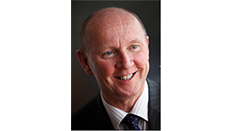CEA case study – Christopher Reynolds
 Why did you want to become a CEA?
Why did you want to become a CEA?
When I saw the advert for the course I didn’t think too much about the accreditation – it was the content and process that attracted me. Like many teachers after a number of years of teaching I was looking for something that would stimulate the little grey cells and be useful to me in my job. I had always had an interest in assessment - and let’s face it, teachers are using assessment in one form or another every day.
I had become involved in some examining and moderating and this gave me some additional expertise in assessment in a formal context. I suppose I wanted to know more and wanted a challenge. The fact that the outcome might provide some accreditation was a bonus – the content was the main attraction.
How did the training course impact on your practice?
Being part of a varied group with different backgrounds but a similar purpose was very stimulating in itself. The first part of the course was a mix of theory and high-level input and practical tasks. There was considerable depth to what we were taught, and this was the challenge I had been looking for. I thought I knew a lot about assessment, but I discovered that I didn’t, and my knowledge base was steadily ratcheted up. The wide breadth of the course meant that there was always something new and often surprising.
What we learnt was practical underpinned by appropriate theory, and was knowledge I knew I would be able to apply back in school and in my examining/moderating work. The second part of the course was a detailed practical application of what I had learnt in a real context. Exploring a department’s approach to assessment from simple homework right through to mock exams and end of year tests, and how these were all tied in with the way the department carried out its day-to-day assessment, was illuminating and exciting. Giving advice as to how the whole process could be knitted together and improved was satisfying, and after initial uncertainty, the department became fully committed to what I was trying to do.
The taught part and the project were hard work, but very fulfilling both in process and outcome. I encouraged other staff to become Chartered Educational Assessors, and once they had completed the course successfully, we formed a powerful triad in the school. Other departments, seeing the success of this venture, asked if they could go through the same process, and it changed the face of assessment in the school. I can still remember the feeling of achievement I experienced travelling home afterwards.
What are the benefits of being a CEA?
First of all, it gave me the intellectual stimulation I had been seeking. There were however practical benefits as well. One of these was that I felt equipped to promote the best of assessment practice in my school, and in partner schools as part of collaborative working. Accreditation by an organisation with a Royal Charter gave me formal recognition in the field. It also inspired me to look at assessment in all its facets throughout my school and then to work to improve it. It gave me confidence, and also knowledge and understanding that have helped in a variety of examining roles. Finally, it gave me a group of like-minded colleagues with whom I could continue to network.

